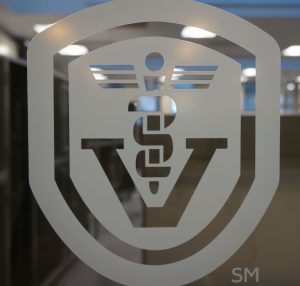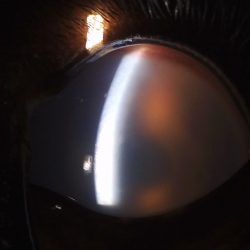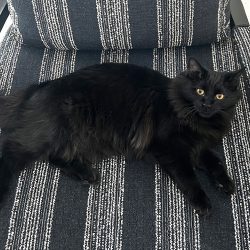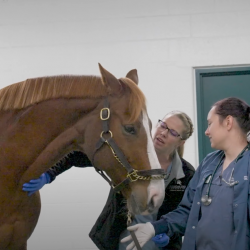History and Diagnosis
A nine-week-old Doberman Pincher named Allie was presented to Dr. Robert Sanders of cardiology services at the MSU Veterinary Medical Center for evaluation of a murmur. Allie was diagnosed with severe pulmonic stenosis (PS), a right to left shunting ventricular septal defect (VSD) and a left to right shunting patent ductus arteriosus (PDA) by echocardiographic examination. The echocardiographic also showed her heart to be dilated and beginning to show signs of loss of contractile function.Immediate intervention was needed
Allie also needed a home. One of the senior veterinary students on the cardiology rotation fell in love and agreed to adopt her.
Treatment and Outcome

Balloon dilation of the narrowed pulmonic valve and closure of the PDA was planned in the cardiac catheterization lab. This minimally invasive procedure can be performed without significant risk and has a high likelihood for positive outcome. The goals in Allie’s case was to close the PDA using a Canine Ductal Occluder ™ using a percutaneous approach through her femoral artery and dilate her narrowed pulmonic valve using a percutaneous approach through her jugular vein. Ideally, the severity of her PS would be reduced, causing the right to left flow through the VSD to become left to right. The procedure was completely successful. The PDA was closed, the PS was dilated, and there was a small amount of left to right blood flow through the VSD. Allie recovered well and went home the next day.
Comments
Allie’s heart disease was complex. Without intervention, it is likely that she would have developed heart failure and died within in a year. It is critical to identify the cause of a murmur as soon as possible in young animals. Doing so will help determine the best treatment plan.
Allie went home with her new friend from MSU and has done well since. Recheck echocardiograms have shown improvement in her heart size and function. It has been almost two years since the procedure and she has not looked back.
Cardiology Department
The Cardiology Service at the MSU Veterinary Medical Center conducts consultations and performs full evaluations on small and large animals referred from other specialty services in the Hospital and from referring veterinary practices.
Common diagnostic procedures performed by the Cardiology Service include electrocardiograms, echocardiograms, blood pressure measurement, Holter, and ambulatory ECG monitoring. Members of the Cardiology Service at the Hospital also perform surgical and minimally invasive cardiac catheterizations. Common procedures include balloon dilation of pulmonic stenosis, surgical or minimally invasive closure of PDA, and pacemaker implantation.
The Cardiology team is always happy to chat with referring veterinarians about possible referrals or problem cases.



